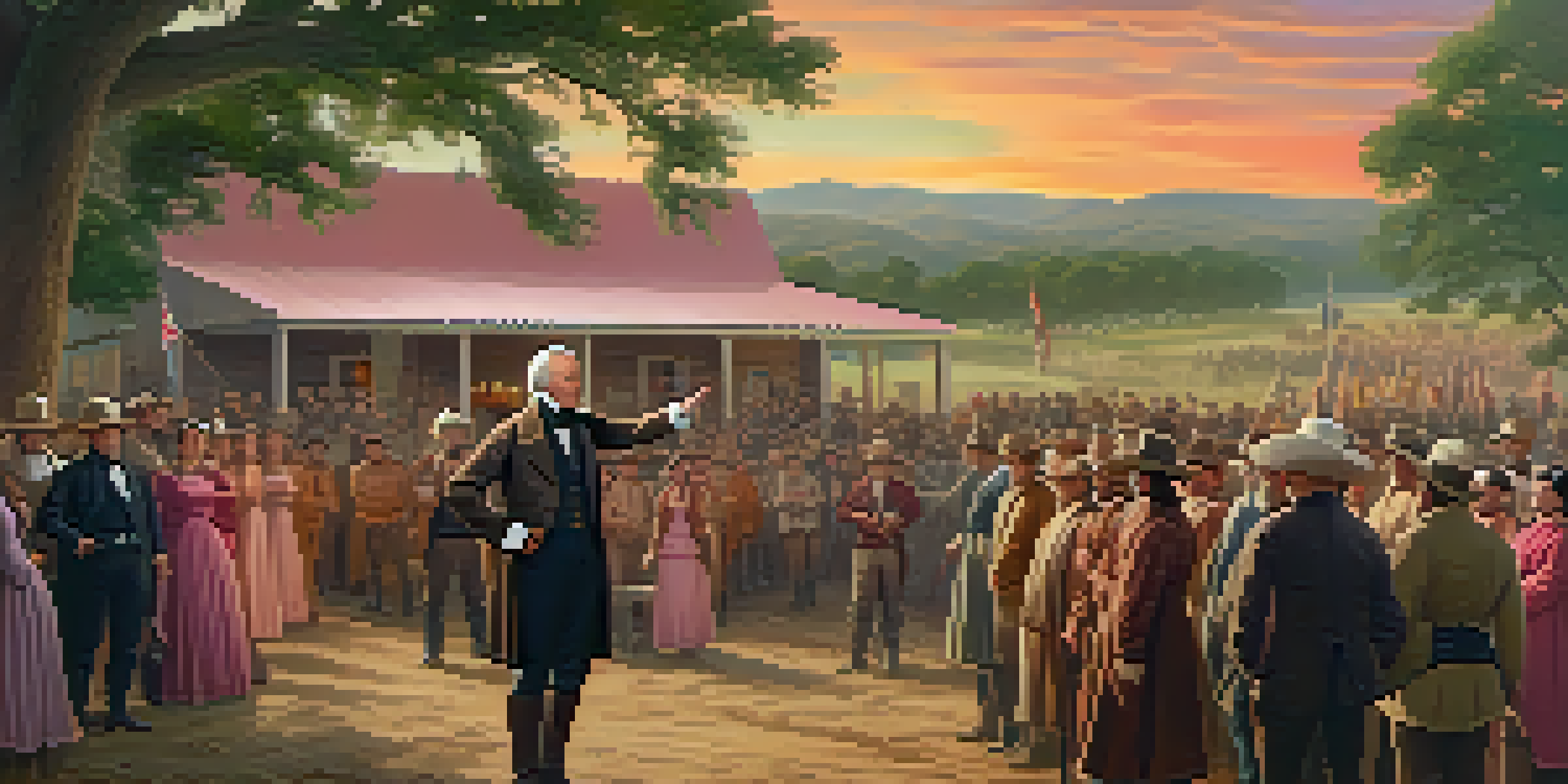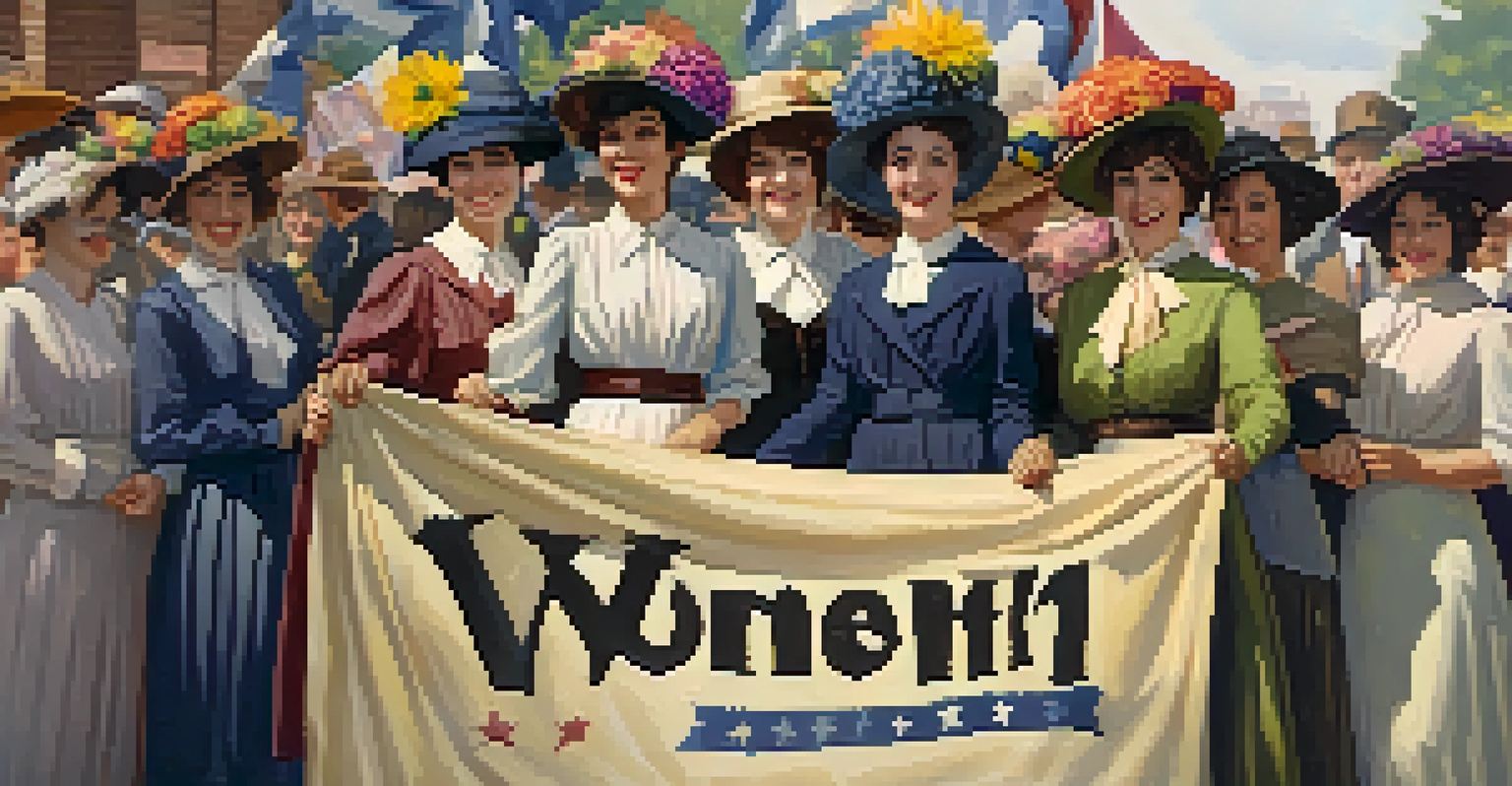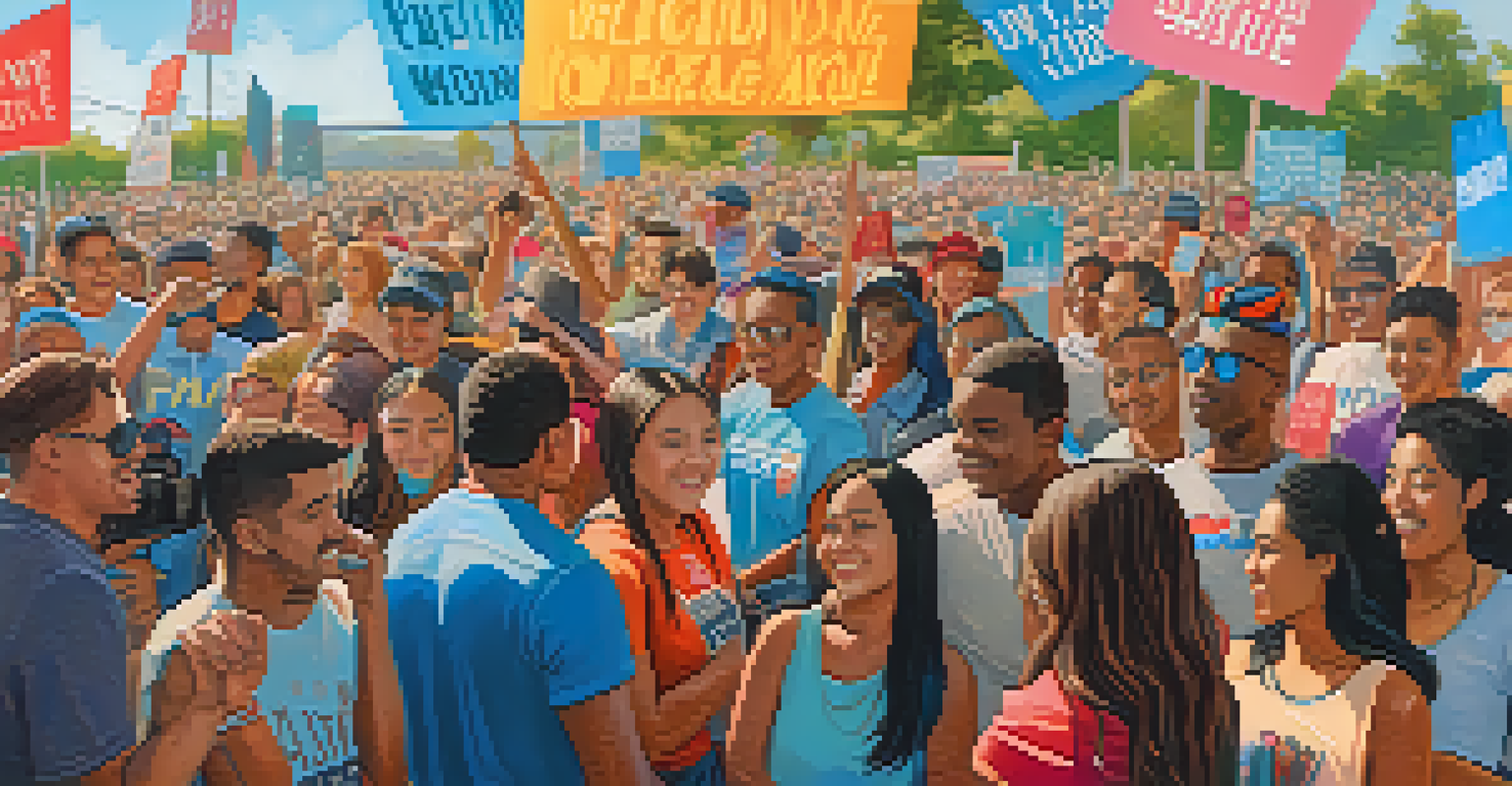Significant Elections in Texas: A Historical Perspective

Early Elections: The Birth of Texan Democracy
The journey of democracy in Texas began in the early 19th century, particularly after gaining independence from Mexico in 1836. The first elections were a crucial step in establishing a governance system that represented the diverse population of Texas. These early elections set the stage for future political movements, highlighting the importance of local issues and representation.
The ballot is stronger than the bullet.
One significant election was the 1836 presidential election of the Republic of Texas, where Sam Houston emerged victorious. His leadership during this tumultuous period emphasized the need for a stable government and laid the groundwork for the future of Texas politics. It was a time when the voices of settlers and indigenous communities began to intertwine in the democratic process.
These foundational elections were not merely about choosing leaders; they were about defining what it meant to be Texan. With each election, citizens forged their identity, showcasing their aspirations and communal values, which continue to resonate in Texas politics today.
The Reconstruction Era: A Turning Point in Voting Rights
Following the Civil War, the Reconstruction era marked a significant transformation in Texas's political landscape. The introduction of the 15th Amendment in 1870 aimed to secure voting rights for African American men, leading to a complex interplay of progress and resistance. This period saw the emergence of new political voices, emphasizing the struggles for equality and representation.

The 1868 election of the first African American state legislator, George T. Ruby, is a prime example of this shift. Ruby's election signified a breakthrough in a predominantly white political arena, showcasing the potential for inclusivity in governance. However, this progress was met with pushback, as Jim Crow laws soon suppressed these advancements.
Early Elections Shaped Texan Identity
The first elections in Texas established a governance system that reflected the diverse population and defined what it meant to be Texan.
These elections during the Reconstruction era were pivotal in shaping the ongoing battle for civil rights in Texas. They not only highlighted the resilience of marginalized communities but also set the stage for future movements advocating for voting rights across the nation.
The Progressive Era: Reform and Change in Texan Politics
The early 20th century ushered in the Progressive Era, a time characterized by reform movements aimed at curbing corruption and expanding democracy. In Texas, this meant pushing for direct primaries and women's suffrage, which radically changed the voting landscape. The election of 1916, where women voted for the first time in Texas, was a significant milestone in this era.
Democracy is not a static thing. It is the law of self-preservation.
Activists like Annie Webb Blanton fought tirelessly for women's rights, and their efforts culminated in the successful passage of the 19th Amendment in 1920. The 1918 Texas primary election, where women participated in selecting candidates, showcased the importance of inclusive democracy. This shift not only empowered women but also transformed the political dialogue in Texas.
As Texans embraced these changes, they began to redefine their political identity. The Progressive Era laid the groundwork for future elections that would further challenge the status quo and promote social justice, illustrating the power of grassroots movements in shaping the electoral process.
Civil Rights Movement: Pivotal Elections Redefining Justice
The Civil Rights Movement of the 1960s was a watershed moment in American history, and Texas was no exception. Key elections during this time reflected the ongoing struggle for racial equality and justice. The 1964 presidential election, where Lyndon B. Johnson campaigned on civil rights, highlighted the intersection of national and local politics.
Johnson's victory in Texas was not just about party allegiance; it was a testament to the changing attitudes towards civil rights among Texans. His administration's efforts to pass the Civil Rights Act of 1964 demonstrated the potential of electoral power to effect meaningful change. This election galvanized communities, pushing them to demand equal rights and representation.
Reconstruction Era Expanded Rights
The Reconstruction era introduced significant advancements in voting rights, notably the election of the first African American state legislator, despite facing resistance.
The impact of these elections resonated well beyond the 1960s, shaping the political consciousness of future generations. The legacy of the Civil Rights Movement continues to influence elections in Texas today, reminding us of the importance of voting as a tool for social justice.
Modern Elections: The Rise of Diverse Political Voices
In recent decades, Texas has witnessed a remarkable evolution in its political landscape, particularly with the rise of diverse voices. Elections like the 2018 gubernatorial race highlighted the mobilization of various communities, including Latinx and African American voters. This shift reflects a broader trend towards inclusivity in Texas politics, challenging traditional power dynamics.
Candidates such as Beto O'Rourke brought fresh perspectives and ignited enthusiasm among younger voters. His campaign in the 2018 Senate race was notable for its grassroots approach, emphasizing community engagement and issues like education and healthcare. This highlighted the potential for change when diverse voices are amplified in elections.
These modern elections are not just about winning seats; they represent a continuous dialogue about identity and representation in Texas. As demographics shift and new generations step into the political arena, the significance of these elections will only grow, shaping the future of Texas politics.
Key Issues Influencing Texas Elections: A Continual Evolution
Texas elections have always been shaped by pressing issues that resonate with voters. From economic concerns to education reform, these topics often dominate the political discourse during election seasons. The ever-evolving landscape of issues reflects the diverse needs and priorities of Texans across different regions.
In recent years, issues like immigration, healthcare, and climate change have taken center stage in Texas elections. Candidates are increasingly expected to address these challenges head-on, as voters seek solutions that align with their values. For instance, the debates surrounding border security and immigration reform have become critical in shaping campaign platforms.
Modern Elections Embrace Diversity
Recent elections in Texas reflect a rise in diverse political voices, highlighting the importance of community engagement and representation in shaping future politics.
As Texas continues to grow and change, the issues influencing elections will also shift. Understanding these dynamics is key for voters, as they navigate the complexities of the electoral process and seek candidates who resonate with their concerns and aspirations.
The Future of Elections in Texas: Trends and Predictions
Looking ahead, the future of elections in Texas is likely to be shaped by ongoing demographic shifts and changing political attitudes. As more young voters enter the electorate, we can expect to see a greater emphasis on issues like climate change and social justice. This generational shift has the potential to redefine the political landscape, making it more reflective of the state's diversity.
Moreover, advances in technology and social media are transforming how campaigns are run and how voters engage with the electoral process. The increasing use of digital platforms for campaigning and voter outreach suggests that future elections will be more interactive and accessible. This could lead to higher voter turnout and greater civic engagement among historically underrepresented groups.

Ultimately, the future of elections in Texas holds both challenges and opportunities. As political landscapes evolve, it's essential for voters to stay informed and engaged, ensuring their voices are heard in shaping the state's future.